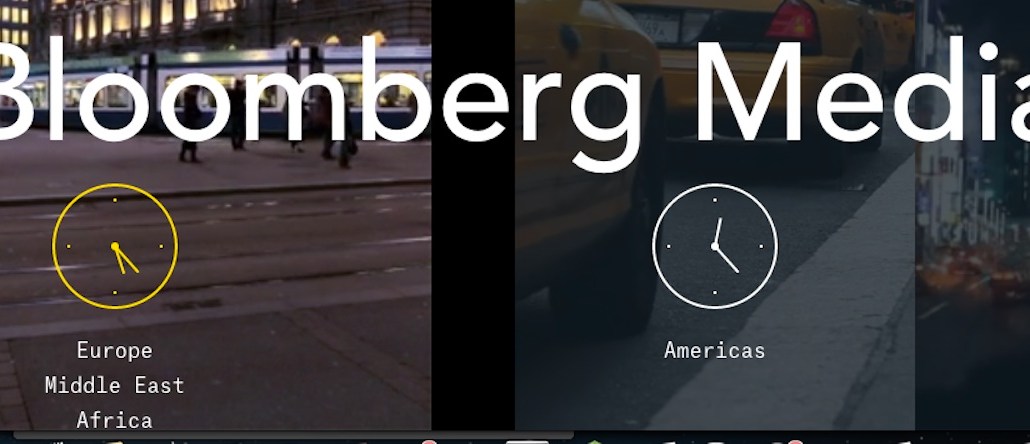
Publishers are jumping into events as a way to generate a new source of revenue as traditional advertising becomes harder to come by. But inevitably, as more players pile into this space, it becomes harder to stand out.
That’s the reality facing Bloomberg Media, which is shaking up its conference business, Bloomberg Live. Early this year, it announced new leadership, hiring Stephanie Mehta from Fortune as its editor, and scaled back its output from 14 to seven bigger events. It’s an approach not dissimilar from the path taken by Business Insider, which has also reduced the number of events it puts on. Others are going in the opposite direction, though: The Atlantic staged well over 100 events last year.
Nevertheless, Bloomberg is betting that fewer, bigger-impact events in general will be more worthwhile for its own journalists who are covering and participating in them, as well as potential sponsors.
Its Bloomberg Markets Most Influential Summit on Oct. 6, for example, is for the first time taking place on the same day in three cities (New York, London and Hong Kong). It’s an approach the company hopes will appeal to sponsors who want to be associated with a global event. At its Bloomberg Technology Conference in June, the company had newsmakers like Yahoo’s Marissa Mayer on stage to fuel original content while its reporters on site collected fodder for future stories.
“It speaks to how we want to best allocate [journalists’] time and brainpower and really pay dividends, not only at the conference but down the road,” Mehta said. As for some of the previous events that are being dropped (such as one for CFOs and one on the business of sports), she said, “They weren’t high impact, and they weren’t memorable.”
As the consumer arm of the larger, subscription-driven news and information service Bloomberg LP, Bloomberg Media serves to elevate the company brand (and ultimately fuel the subscription service) through its journalism.
In that vein, there are other changes to the events to underscore that they’re extensions of the company’s journalism. The events team now reports to both editorial and business (John Micklethwait and Justin Smith, respectively); previously, it just reported to the business side. The edit side is more involved now in programming the content. Bloomberg journalists who are moderating panels are required to do prep calls with panelists well in advance, Mehta said, “to make sure the content is as strong as it can be.”
One of the ways Bloomberg is trying to stand out with its conferences may raise eyebrows. Luring attendees away from their offices to attend events is another challenge as the conference arena grows more crowded. So to make them more appealing, Bloomberg Media also is experimenting with a shortened panel format and, perhaps controversially, making one of its three tentpole events, Bloomberg: The Year Ahead, mostly off the record. That goes against common practice at conferences by other leading publishers.
Going off the record can play a legitimate part in the news-gathering process, said Tom Rosenstiel, executive director of the American Press Institute. It depends how it’s used, though. The Washington Post (and The Atlantic) once faced scrutiny over the subject of off-the-record events involving newsmakers and journalists. A big difference is that the Post’s proposed “salons” gave the appearance of the newspaper selling access to its journalists, whereas Bloomberg appears to be merely using its influence to gather sought-after executives for idea-exchanging.
But the question is whether such events like Bloomberg’s benefit its news-gathering efforts, which in turn benefit the public good, Rosenstiel said. “How is this creating journalism if the journalists can’t use it?” he said.
A Bloomberg spokeswoman acknowledged the tack might be considered unconventional but said the idea is to encourage candid conversation among the top executives attending the event. Said Mehta: “We’re experimenting with our format this year to create an environment where C-level peers feel comfortable to speak freely on the business issues they’re facing in the year ahead.”
Image courtesy of Bloomberg.com.
More in Media

Digiday+ Research: Dow Jones, Business Insider and other publishers on AI-driven search
This report explores how publishers are navigating search as AI reshapes how people access information and how publishers monetize content.

In Graphic Detail: AI licensing deals, protection measures aren’t slowing web scraping
AI bots are increasingly mining publisher content, with new data showing publishers are losing the traffic battle even as demand grows.

In Graphic Detail: The scale of the challenge facing publishers, politicians eager to damage Google’s adland dominance
Last year was a blowout ad revenue year for Google, despite challenges from several quarters.





